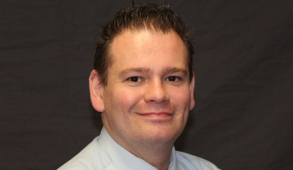Survey seeks views on future of costing
With a new survey launched to collect the views of the costing community and other stakeholders, Daniel Clark (pictured), cost collections manager for the two national bodies, said the national costing team was in listening mode.
The survey is just one mechanism the costing team is using to sound costing practitioners out on the practical implications of moving to more frequent cost collections. It has already interviewed some 50 costing practitioners and other interested parties about the value and challenges of more frequent cost collection and it is planning to continue this exercise.
The findings from these interviews along with the survey results will be presented to a steering and advisory group made up of chief finance officers and finance directors drawn from different regions and sectors across the country. About 25 finance leaders are being invited onto this group, who will be presented with a key themes report based on the stakeholder engagement exercise.
‘They will have a discussion about the direction we should take going forward and will make recommendations,’ said Mr Clark. ‘We have no preconceived opinion on what they will recommend – it could range from the status quo to wholesale change.’
The possibility of moving to more frequent national cost collections – originally imagined as a quarterly submission – was first raised last November and NHS chief financial officer Julian Kelly has asked the costing team to review the options. At the HFMA Healthcare Costing for Value Institute costing conference in April NHS England and NHS Improvement director of pricing and costing Chris Walters said the centre was open to a range of options. At the time he said these could include a sampling approach, with only selected providers submitting more frequent costs, or the development of ‘lighter touch’ costing standards.
The HFMA has highlighted concerns raised by costing practitioners about the complexity of the existing costing methodology. The association has called for the standards to simplified in any case, but this need would be amplified by the move to more frequent cost returns.
Many organisations use separate costing models to meet their own local reporting requirements and for the annual national return – one key difference is whether certain costs are unbundled and reported separately from general treatment costs. There are also concerns about the materiality of costs that need to be reported and that increasing the time taken to make national costing submissions would reduce the time available to use costing data to support local improvement programmes.
The survey gathers information about the resources currently available to trusts to deliver costing, their current costing outputs and the level of detail included within internal costing reports. It also seeks views on the capacity to increase cost collection frequency and the most important measures that should be considered when analysing cost data.
Acute, mental health and ambulance trusts currently make annual mandatory patient-level cost returns, with community service providers due to make a first mandatory return in 2022. A number of trusts also taken part in a voluntary exceptional quarterly collection to help the service understand the impact of the Covid pandemic on NHS costs.
The survey is open until 16 July.
NHS England and NHS Improvement this week published its report on the National Cost Collection for 2019/20. It shows how £72.6bn was spent by 208 providers in England delivering health care to patients. Nearly £57bn of this was spent on acute services, with a further £8bn, £5.5bn and £2.3bn of costs incurred by mental health, community health and ambulance services. Included with the report is the national cost schedule showing the activity, total costs and average costs for different treatments and interventions, broken down by healthcare resource groups and outpatient attendances.
Related content
We are excited to bring you a fun packed Eastern Branch Conference in 2025 over three days.
This event is for those that will benefit from an overview of costing in the NHS or those new to costing and will cover why we cost and the processes.